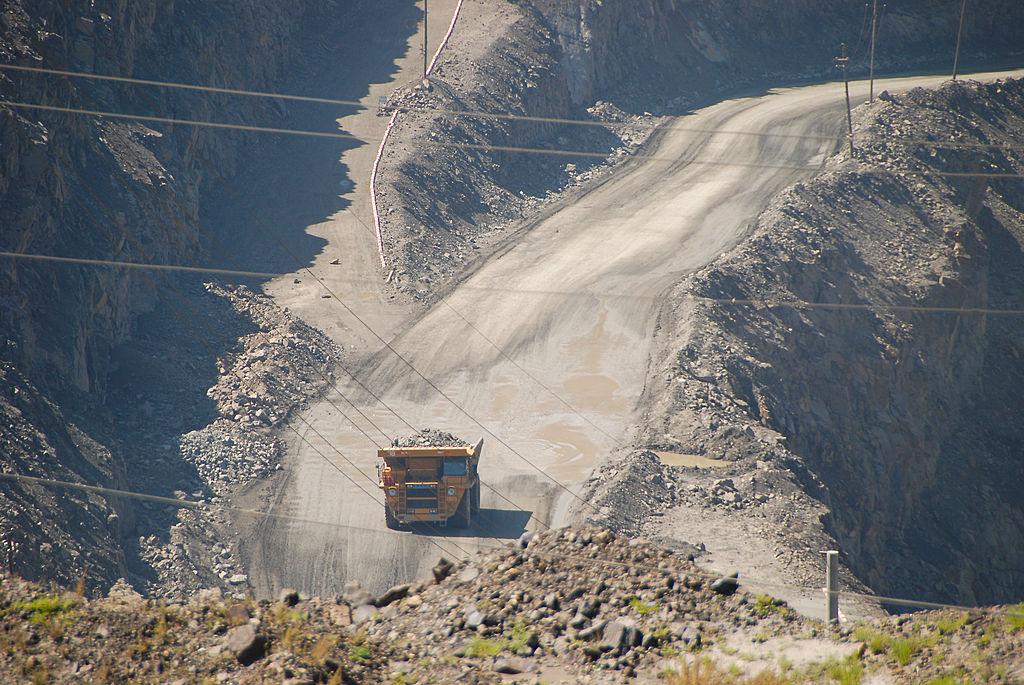
The global markets for rare-earth elements and critical minerals are shaping to be the next economic hot zone for the Chinese Communist Party—and for Australia’s security.
Japan recognised the economic vulnerability created by China’s near monopolistic control of these markets more than a decade ago when the CCP restricted Japan’s access to rare earths during a dispute between two countries over the Senkaku Islands.
In contrast, awareness is only now gathering pace in Australia, the US, Canada and other like-minded nations. The challenge ahead for these countries is to work together to create secure supply and value chains by supporting investment, building infrastructure and helping the sector to identify and lock in customers.
Already, Beijing appears to have recognised that the tentative steps other countries are taking could unravel its coercive power in the sector. In a breathtaking moment of hypocrisy, Chinese Foreign Ministry spokesperson Zhao Lijian said last month: ‘No one should use the economy as a political tool or weapon, destabilise the global industrial and supply chains or punch the existing world economic system.’
Even before Xi Jinping came to power, Chinese companies recognised the strategic and economic importance of rare earths and critical minerals. Low labour costs, indifference to the environmental impacts of mineral processing, and the rest of the world dropping the ball while focusing on other issues allowed Beijing to achieve global dominance of these markets, with almost 80% control of rare earths and up to 94% of other critical minerals like magnesium. Beijing’s increased state control of Chinese companies has further armed it with a suite of coercive economic levers.
Japan has led the way in responding to this market control, including by investing in Australian rare-earth company Lynas, which should provide confidence in an alternative, resilient supply chain.
Better late than never, the rest of us are catching up. In February, Washington announced actions to bolster the supply chain for rare earths and other critical minerals to reduce dependence on China. This was followed by US government investments in onshore processing of heavy rare earths.
In June, Lynas signed a US$120 million contract with the US Department of Defense to build a commercial facility in Texas for separating heavy rare earths.
Canada has also begun addressing the issue, announcing last month that any foreign state-owned enterprise looking to purchase Canadian assets in the sector could be subject to a comprehensive review to ensure the purchase is not ‘injurious to national security’. This effective national interest test reverses the default towards investment and short-term company profit and instead prioritises Canada’s security and sovereignty.
And by ordering divestiture by foreign investors in three Canadian critical mineral companies, Prime Minister Justin Trudeau’s government has made it clear that this is a new economic security approach, not a rhetorical warning.
In Australia, former PM Scott Morrison’s government set some foundations for growing Australia’s critical minerals sector and expanding downstream processing, and followed up with a $1.25 billion loan through the Critical Minerals Facility to Australian company Iluka Resources to set up the country’s first integrated rare-earths refinery, moving Australia up the sector’s value chain.
Last month, at a conference co-hosted by ASPI and the Australian National University, Resources Minister Madeleine King vowed to ‘make the most of the natural endowment we have of these resources so that we can provide an alternative source of them from China’.
The $50 million in grants that King announced in September to help Australia become a ‘global supplier’ of rare earths is a positive move, though the news that Australian ‘rare earths aspirant’ VHM Limited plans to sell 60% of its product to Chinese state-owned company Shenghe is a setback to plans to achieve strategic independence in rare earths.
Last week, the Albanese government announced it is considering ways to limit China’s investment and influence in Australia’s critical-minerals industry.
And there are opportunities well beyond Australia, Canada, the US and Japan. While the German government continues to find ways to misjudge the reality of the Russian and Chinese regimes, even Chancellor Olaf Scholz ahead of his ill-considered trade visit to Beijing said that ‘where risky dependencies have developed—for important raw materials, some rare earths or certain cutting-edge technologies, for example—our businesses are now rightly putting their supply chains on a broader footing. And we are supporting them in this, for example with new raw material partnerships.’ Australia must not miss this opportunity.
It’s a positive sign that so many like-minded countries, including Australia, are not just identifying that there’s a problem but are willing to take action. Sovereign resilience is beyond the reach of any one country. Now is the time for ‘minilateralism’ to take centre stage. Australia has an opportunity to provide the kind of leadership that will see Japan, Canada, the US and others create new mines, new midstream processing and new manufacturing of rare earths and critical minerals. These countries beginning the journey together will increase confidence of others, particularly in our near region, to join.
For years, the CCP has acted outside the market to maintain its level of control of the sector. Piecemeal efforts pose little trouble to Beijing, but a growing sense of open, liberal societies working together has it worried, which is why it is doing what it can to stifle collective action.
Some observers will continue to argue that governments must stay out of the free market. But this merely means that governments like Australia’s stay out while the Chinese and Russian regimes consolidate control.
Market forces won’t, on their own, provide economic resilience and a secure supply chain. Collectively, we can provide a viable, competitive alternative market that offers products through supply chains that are secure from domestic policy disruptions and economic coercion.
Without action, there will be no choices, no alternatives and no free market. In choosing not to act, Australia would effectively be choosing to become as dependent on Beijing for rare earths as Europe has been on Moscow for energy. The choice is still ours.